Minutemen were civilian colonists who independently formed militia companies self-trained in weaponry, tactics, and military strategies, comprising the American colonial partisan militia during the American Revolutionary War. They were known for being ready at a minute's notice, hence the name.
Motto: protect the people at a minute's notice
Before America took over as the ultimate world-police imperialists, that 'job' was privy only to Britain.

Indeed, it seems as though sometime in the 1800's America took England's job much like we accuse migrant workers and other foreigners of the same 'crime' here today in the States.
A big part of why England imperialists lost the war for this new country heavily revolved around various logistics, the biggest of which (just like COVID) was supply lines and their disruption. While we all take these things for granted because they all happen in the background, logistics is a critical backbone of any economy or operation. Physical products/services must be made available in the locations that demand them or else there's going to be a big problem.
If America needs to move infantry, cannons, and food to West Virginia, it's a lot easier for them to move product over a state line or two than it is for England to put that stuff on a ship and sail it all the way across the Atlantic Ocean, where it must then unloaded at a port they control and then shipped by ground across potentially hostile territory. This supply convoy is much more vulnerable and theoretically could be attacked anywhere along the way. It could even be lost at sea due to random events like a storm.
Even if England had a massive army in the mainland, they had to make sure to always control key ports so that their supply lines would not be cut. Even the biggest army, if fully surrounded, will fall to its knees in short order. Take away their ammunition and food and see what happens.
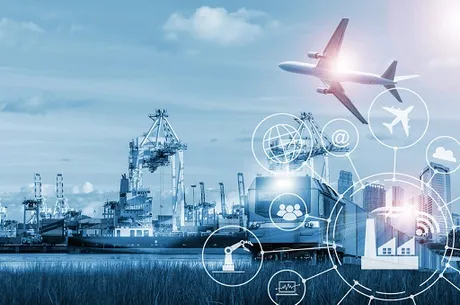
Logistics matters
COVID supply lines also had many issues. The "just-in-time" business model used to eliminate all waste also eliminated all buffers and sorely needed overstock during a time of great need/demand. Again, logistics is like air: no one gives it a second thought and simply takes it for granted until the system breaks and we "run out of air".
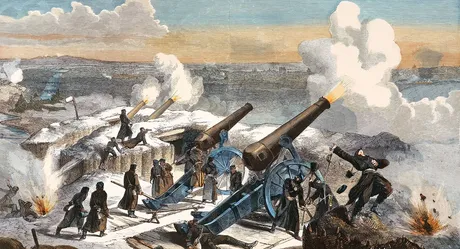
Oceania was at war with Eurasia; therefore Oceania had always been at war with Eurasia.
As far as the fight for Independence is concerned, there is actually no way England could have won the war even though it seemed like they would on many occasions. The best they could have done was delay fate for a decade or two. The United States was destined to govern itself for the same reason China and Russia can't be taken over by foreign invaders: logistics. Big chunks of land with lots of resources and people can't be controlled from overseas.
Looking at American foreign policy: it becomes obvious that even controlling small third-world countries in a limited capacity (blood for oil) is extremely difficult. We couldn't even bring Vietnam to heel, which is pretty insane when you think about it. Vietnam beat us in the same way that we beat England: guerrilla warfare, simplified logistics, and extreme home-field advantage combined with a kind of zealotry that one can only gain by defending their homeland. Unfortunately the middle east is not so lucky due to their oil resources making infinite war a profitable endeavor.
Guerrilla warfare was essentially invented during the American Revolutionary War. Before that armies were forced to macro-engage on huge battlefields where many of the combat variables were known. But then American's started "fighting dirty", using ambush tactics and running away before support could arrive, further exploiting traditional military operations. Many of these tactics were employed by "minutemen" aka civilian militia. Their existence and critical role played during the war are a big reason for the Second Amendment rights.
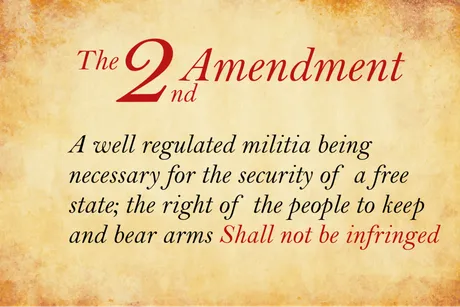
The idea being that it's harder for American government to become extremely corrupt and imperialist like England if the citizens are provided all these rights from square one. As these Amendments get attacked over time it would be more and more obvious that government had become fully corrupted. In fact, pretty much all of the Amendments to the constitution exist to protect the people from the American government. The Founding Fathers knew it was only a matter of time before this corruption would set in, and we've been stewing in that corruption for quite some time now.
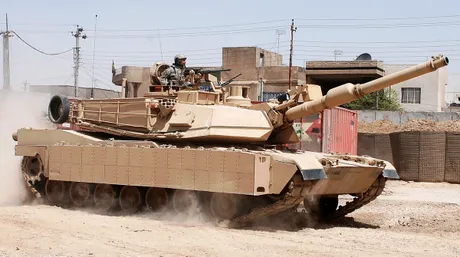
The problem with government is technology. Tech is exponential while government is slow and riddled with red tape. "Cavalry" used to mean a guy on a horse, and now it means a guy in a mobile metal bunker that has the power to raze buildings with an armored mounted 50-cal machine gun. Even if we had a "well regulated militia" according to the 2nd amendment, such a militia would be powerless against a real military force this day in age.
The Second Amendment becomes even more convoluted when mass-shootings continue taking place, and left-wing politics demands extreme regulation to be imposed on automatic rifles in a sad attempt to curb this "senseless" violence: a bandaid placed on top of a festering wound. Unfortunately: the problem isn't guns (this is a mental health epidemic), so regulating weapons isn't a solution, and is directly opposed to the constitution itself.

I spend 50% more on cage-free chickens because I'm so progressive!
Society can ultimately be judged on a moral level by looking at how we treat our animals and our prisoners. Factory farms are abysmal hellscapes and prisoners are legally enslaved under the 13th Amendment, where they are then forced to work for literal slave-wages or be tortured by solitary confinement (prison in prison). When prisoners leave prison they are not reformed, have extremely high recidivism rates, and no one will hire them. So yeah, we aren't doing great because justice ideally has nothing to do with revenge and everything to do with making the world a better place.
Nothing about the current global situation is heathy or sustainable.
It starts to become obvious that humans are being factory farmed by governments just like animals are factory farmed for food. There are billions of helpless people all over the world who are subjected to laws by force and can't do anything about it. The world is run in a top-down fashion and regulations and patent laws run rampant, protecting the corporations and the mega-rich while constantly stomping on the lower classes. At a certain point: something has got to give.
Crux: The problem with government is technology.
Those who have been involved with crypto long enough start to realize that all these sustainability issues are on the verge of being solved.
- Crypto turns money into technology.
- Crypto turns governance into technology.
It's hard to see where this is going because everything is so new and Wild-West status, but it's very obvious that truly insane things are going to go down over the next decade or two: Roaring Twenties indeed!
What I do know is that small communities are going to start building massive amounts of wealth, and that wealth needs to be protected along with the citizens. It no longer makes sense to provide said security in a centralized way like we've been doing since the beginning of time.
This is why I make such claims.
It's only a matter of time before patches of physical land start coming under governance control of crypto. Crypto city-states will be a wild thing to behold, and their freedom depends not so much on military might, but again will rely heavily on logistics and operations.
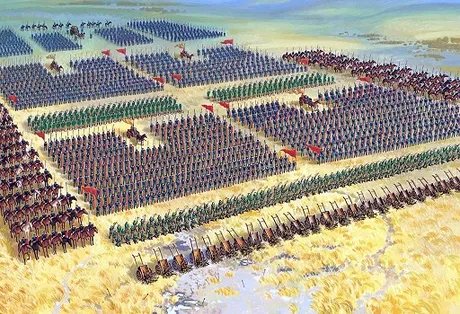
When one country goes to war with another in a quest for resources... how does that actually work? First you have to win a battle or two and secure the physical land where those resources are processed. For simplicity sake let's say an enemy factory has been taken over and now produces goods for the attackers "good guys". This only works because the entire world works in a centralized manner.
What if it had been a decentralized factory? What if 1000 different people across the city were building parts in their garage and working together to complete the final product? How does a centralized military force take something like that over? Short answer: they cannot, especially when considering they must also own all of the associated private keys and constantly force 1000 different people to do what they want rather than appointing a new CEO to the company. Taking over a decentralized production line by force becomes extremely unprofitable in an extremely short period of time. We saw this firsthand with the Steemit hostile takeover.
The same is true for governance.
It wouldn't be hard for the top 20 witnesses on Hive to get taken over by a superior firepower and outside forces... in fact hell, that's already happened. However, a voting war and a fork later we still won the war even if we did lose the battle for our old brand. Trust me, these situations will just keep getting weirder, crazier, and more volatile over time as crypto expands exponentially into the future.

Minutewomen assemble!
And so I believe that we are on the verge of completely upending all of these centralized defense tactics that have been employed from the beginning of time. These small niche communities need protection, and every citizen in the new world will basically also need to be a soldier or at least have basic knowledge of what's going on.
Decentralization demands that every single person has more power individually, not some centralized corruptible agent. Not only that, decisions/leadership will also need to be generated in a decentralized way (much easier said than done).
The flippening.
Up until now a lot of our technology was originally built to dominate others and impose further tactics of imperialism. Even the Internet itself was originally a military technology. I believe that the future of defense will be the opposite of this. Rather than military tech being adapted for civilian use, civilian tech will be adapted into weapons after the fact when it has already paid for itself a thousand times over.
Examples:
- Lasers & other forms of projected energy.
- Light itself is a very mysterious resource. Not only can it be turned into other forms of energy it can also transmit all kinds of data to and from locations. Laser tag 2.0 turned into a military training operation is certainly not out of the question.
- Drones.
- Whether it be delivering you packages or armed with an explosive device, automated and remote-control drones are an extremely useful piece of tech across the board. Imagine competitive drone racing evolving into military tech.
- 3D printing
- Whether your printing out a house, a hamburger, or a gun, 3D printing is clearly a technology of the future that allows individuals to regain control of the means of production. Whereas in our current system all production is controlled by those who own the corporations.
- Bionics.
- This is truly some end-game Ironman type stuff. Bionics can replace someone's leg or give them a suit to run and jump three times faster. This is something that probably won't take root until crypto has basically already taken over the legacy economy.
- Pharmaceuticals & genetic modification
- Again, we have a long way to go before we can upend big-pharma and Monsanto with a decentralized community, but the writing is on the wall; it's only a matter of time. Not if, but when.

When we look at how much money gets spent on military imperialism and forcing people to do what we want with weapons, it's quite clear that globally a lot of resources are being wasted purely based on fear and the need to conquer others with military might. How many planes and missiles have we produced that will never even be used? There's got a be a better way to do these things, and that way revolves around adapting tech that already has value during peacetime rather than constantly spending massive resources on tech that can only be used to destroy and dominate.
Conclusion
The world isn't going to make any sense in 20 years. The cat is out of the bag, and that thing has some sharp claws and won't be going back in. Crypto is here to stay, and it is slowly taking over the most important sectors of the global economy. First money, and then governance itself. The middle men are being automated into oblivion. It's only a matter of time before complete worldwide disruption kicks in and crypto outscales the legacy systems.
The friction created between those legacy systems and the new way of doing things will create untold amounts of friction, hardship, and dare I say suffering, but there is really no way to avoid such things. With exponential growth comes exponential growing pains. All we can do is try to play it safe and hope we get lucky.
Posted Using LeoFinance Beta
Return from Return of the Minuteman to edicted's Web3 Blog
